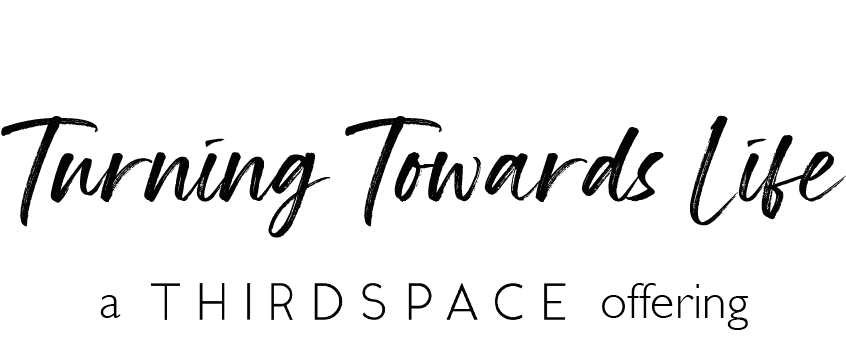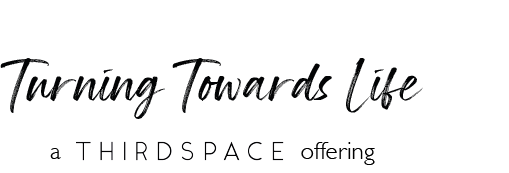The Abandoned Parts of Ourselves, Episode 74
Here's episode 74 of Turning Towards Life, a weekly live 30 minute conversation hosted by thirdspace coaching in which Justin Wise and Lizzie Winn dive deep into big questions of human living.
You can join our members-only facebook group here to watch live and join in the lively comment conversation on this episode. You can also watch previous episodes there, and on our YouTube channel.
In this week's conversation we talk about adult development, about the loyalties to particular ways of doing things that we enter into during childhood, and about what it is to find ourselves free - to a greater or lesser extent - to pursue what is increasingly 'ours' to do in the world. Along the way we grapple with the many kinds of orthodoxy that shape us throughout life - family, religious, societal - and explore together how we might turn our loyalties to them into a bigger kind of loyalty which takes in life itself. We end with a consideration of the support and community that can help us find a life that feels true and real and which can joyfully welcome the parts of us that our loyalties - up until now - have had us turn away from.
Reclaiming the Abandoned Parts of Ourselves
The transformation from the [Self-Authoring] third order to the [Self-Transforming] fourth order of consciousness is akin to leaving the family's faith ...
Every one of us grows up with such an orthodox faith ... that operates powerfully and mysteriously in every family, is passed down to children by attendance at the house they grow up in, and is nourished in the private rituals and customs that enact and enforce the family's deepest idiosyncratic beliefs of what life is really about ... The beliefs, rules, values, ideals, prejudices, passions, promises, betrayals, terrors, demons, and angels that every family passes before and onto its children declare, finally, where we who belong to this family stand in relation to the awesome powers of the universe ...
What might become of our sense of ourselves were we to consider deeply that our lifelong tendencies to diminish ourselves or constrict our experience may be a function not of our limits and incapacity but our astonishingly competent exercise of faithfulness and devotion to the terms of our family religion as we learned them in the house of worship where we grew up? ...
And what might become of us were we newly to regard the parts of ourselves that have run counter to the family religion, that we have had to disown to continue in the fold? ...
With the proper supports these abandoned parts of ourselves, brought into view, might move ... from being painful evidence of our unworthiness to frightening agents of our spiritual undoing to the very vehicles by which we transform the terms of our loyalty and acceptability.
– Robert Kegan, from In Over Our Heads: The Mental Demands of Modern Life
Photo by Bambi Corro on Unsplash

